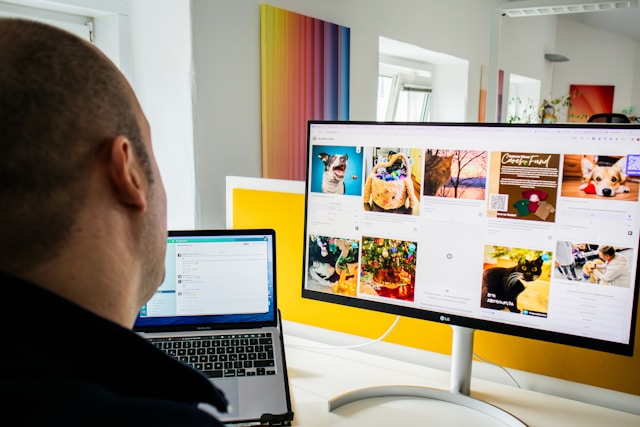The three projects, ‘HAVEN’, ‘V2Street’ & ‘V2GO’, won a total of £4.7m of funding as part of the Vehicle-to-Grid competition, funded by the Office for Low Emission Vehicles (OLEV) and the department for Business Energy and Industrial Strategy (BEIS), in partnership with Innovate UK.
In January 2018, OLEV and BEIS announced that 21 projects (8 feasibility studies, 5 collaborative research and development projects, and 8 real-world v2g trial projects) were to receive funding of c£30m to develop the business proposition and core technology around V2G, and demonstrate those with large scale trials. The projects involve more than 50 industrial partners and research organisations from both the Energy and Automotive sector, marking the largest and most diverse activities on V2G in the world, and trialling more than 2700 vehicles across UK.
The V2G projects represent a significant step towards the transition to a low carbon transportation and a smart energy system. Allowing EVs to return energy to the Power Grid when parked and plugged for charging, will increase Grid resilience, allow for better exploitation of renewable sources and lower the cost of ownership for EV owners, leading to new business opportunities and clear advantages for EV users and energy consumers.
Upside Founder and Chief Scientist Dr Graham Oakes said ‘Electric vehicles are going to be key to reducing emissions and greenhouse gases from transport, and there’s a growing trend in their favour. But barriers still remain. We need to overcome issues for on-street and home charging infrastructure, and questions about allowing many vehicles to charge whilst maintaining grid balance and stability. This funding will allow Upside and our partners to maximise the potential of electric vehicles to consumers, local authorities and the energy system, and help build a new, cleaner and more equitable, energy system for the UK.”
Upside has developed a unique cloud service that combines the energy stored in equipment that people and businesses already own (like electric vehicles, uninterruptible power supplies (UPS), home battery systems attached to solar PV arrays, and domestic heating systems). This can then be aggregated through Upside’s Virtual Energy StoreTM and sold to the grid to help balance energy supply and demand.
The combined £4.7m awarded by Innovate UK to Upside and its partners will be used to fund three projects exploring Vehicle-to-grid.
‘V2Street’ addresses the chicken-and-egg problem that people who cannot park their cars off-street will not buy EVs, if they cannot see that on-street charging infrastructure is available; and local authorities won’t install infrastructure if they cannot see demand for EVs. V2Street will explore ways to break this deadlock by developing a novel consumer value proposition that uses flexibility in V2F-enabled charging to provide demand side response (DSR) services to the energy system. Revenue from these DSR services then supports investment in charging infrastructure, creating a virtuous cycle of EV adoption and infrastructure investment. Partners on the project include Ubitricity, E-Car Club, Southend-on-Sea Borough Council, Durham County Council, UK Power Networks, EDF, Imperial College, Loughborough University and Future Cities Catapult.
‘HAVEN’ will explore the use of EV batteries to provide flexibility to the energy system within the context of other systems in the home, e.g. batteries attached to solar PV arrays, domestic heating and hot water systems. It will use the unique facility of the Salford Energy House, a Victorian terraced house within a climate-controlled chamber, to test different configurations of EV battery and other storage system and hence build a robust suite of models of the value that EV batteries can bring within an integrated home energy storage system. Upside will partner with Salford University, Honda and Good Energy to conduct this study.
‘V2GO’ – will develop, trial and evaluate potential business models for fleet operators to engage with vehicle to grid opportunities through the development of ‘on’ and ‘off’ vehicle hardware, products and services. Given the size and usage patterns of fleets, economies of scales could be generated by fleet operators which would encourage large scale uptake of electric vehicles. The project is led by EDF and includes; Upside Energy, University of Oxford, Oxfordshire County council, EV chargers EO, Fleet Innovation Ltd and manufacturer of EVs, Arrival.
About Upside Energy
Every time you hit a switch, somewhere a power station has to work a little bit harder. That’s fine for coal or gas — they can just burn some more fuel — but it doesn’t work for renewables. The sun won’t shine more brightly just because you want to boil the kettle. To fully exploit renewable generation, the system needs flexibility from somewhere else.
Upside Energy provides that flexibility. Its cloud platform uses advanced algorithms and AI to coordinate devices that households and businesses already own, e.g. in backup power supplies, home battery systems, electric vehicles, hot water tanks, heating and cooling systems, to match demand for energy onto available supply.
This lets the energy system make better use of both conventional and renewable generation, saving both costs and emissions. System operators pay Upside to create these savings, and it shares that revenue with the manufacturers and owners of the devices it controls.
Upside was created for a challenge prize run by National Grid in 2013. It has since won numerous awards, e.g. the £150k Shell Springboard prize for low carbon innovation in 2017. It has raised £2.4m of grant funding from Innovate UK, the Department of Business Energy and Industrial Strategy, and the EU Horizon 2020 programme, and £1.2m of seed equity from angel investors. It closed a £5.5 Series A Funding round, led by SYSTEMIQ and Legal and General Capital, on 21 December 2017. This recent funding from Innovate UK complements that funding, helping Upside to further realise its vision for a new, cleaner and more equitable, energy system.









